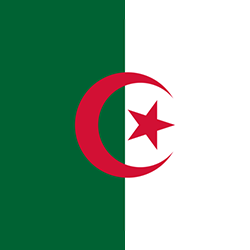The ReMinEm project compares the rights enjoyed by religious minorities (RMs) in two Middle Eastern and four European countries. These countries were chosen because they reflect the variety of religious and cultural traditions in Europe and the Middle East: one country with a Muslim majority (Egypt), two countries with a Catholic majority (Italy and Portugal), one with an Orthodox (Greece) or Protestant (Denmark) majority, and finally one country where Christians and Muslims coexist on a substantially equal footing (Lebanon).
In each of these countries, different RMs have been considered, as a religious group that is minority in one country may be majority in another. Where possible, an attempt has been made to take into consideration the same RMs to allow for easier comparison. For this reason, in the European countries, the Orthodox, Protestant, and Catholic Churches (where they constitute a minority), the Jewish and Muslim communities, and Jehovah's Witnesses have always been considered. The different religious demographics of the two Middle Eastern countries prevented applying the same criterion, and only one RM (the Ahmadi communities) was considered in both Lebanon and Egypt. However, the variety of religious organizations is not an obstacle since all are minority groups and the research is focused on minority rights.
The MiReDiaDe project compares the rights of selected RMs in five countries on the northern and southern shores of the Mediterranean Sea, which reflect the variety of religious and cultural traditions in the geographical space concerned: two countries with a Muslim majority but with two very different legal histories (Algeria and Türkiye), one with a Catholic majority (Croatia), one with an Orthodox Christian majority (the Republic of Cyprus), and one whose legal system has been deeply influenced by the principle of laïcité (France).
As with the ReMinEm project, different RMs have been taken into consideration in the MiReDiaDe countries. Jehovah’s Witnesses, Jews and Muslims have been taken into account in Croatia, France and the Republic of Cyprus, in addition to two Christian minorities (Orthodox Christians and Protestants in Croatia and France, and Catholics and again Protestants in the Republic of Cyprus). In Algeria and Türkiye, where religious pluralism is more limited and the gathering of information has sometimes proved rather troublesome, the RMs concerned have been the Catholic and the Protestant ones.
Currently this website website includes the following RMs:
Algeria: Catholic Church; Evangelical Churches.
Croatia: Evangelical Churches; Mainline Protestant Churches; Muslim communities.
Denmark: Catholic Church; Christian Orthodox Churches; Jehovah’s Witnesses; Jewish communities; Muslim communities.
Greece: Catholic Church; Jehovah’s Witnesses; Jewish communities; Muslim communities; Protestant Churches.
Egypt: Ahmadi communities; Baha’i communities; Coptic Church; Shia Muslim communities.
France: Evangelical Churches; Jehovah’s Witnesses; Mainline Protestant Churches.
Italy: Christian Orthodox Churches; Jehovah’s Witnesses; Jewish communities; Muslim communities; Protestant Churches.
Lebanon: Ahmadi communities; Alawite communities; Syriac Christian Churches; Jehovah’s Witnesses.
Portugal: Christian Orthodox Churches; Jehovah’s Witnesses; Jewish communities; Muslim communities; Protestant Churches.
Republic of Cyprus: Catholic Church; Jewish communities.
Türkiye: Catholic Church.
Note on the data regarding religious demographics
The data on religious demographics are taken from the World Religion Database (WRD), integrated ‒ when not available ‒ with other sources.
In all countries, except Lebanon, statistical data on Jehovah’s Witnesses are taken from the official JW website (https://www.jw.org). No data are available for Lebanon.
For Lebanon and Egypt, no government/census data are available on the number of members of religious minorities. For Lebanon, data are provided by the Lebanese statistical company Information International, as WRD does not offer data of the RMS taken into account for this country. For Egypt, data are from the WRD, but the number of Copts was calculated by combining two sources: the US Department of State, 2021 International Religious Freedom Report, according to which 90% of Christians belong to the Coptic Orthodox Church, and the WRD, which provides the total number of Christians.
“N/A” means that no data are available for a minority.


 MENU
MENU












